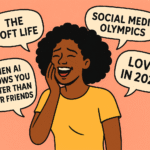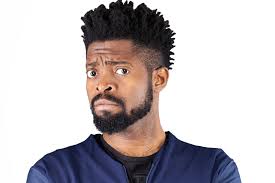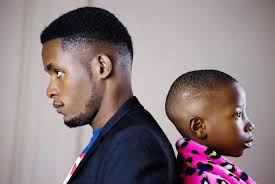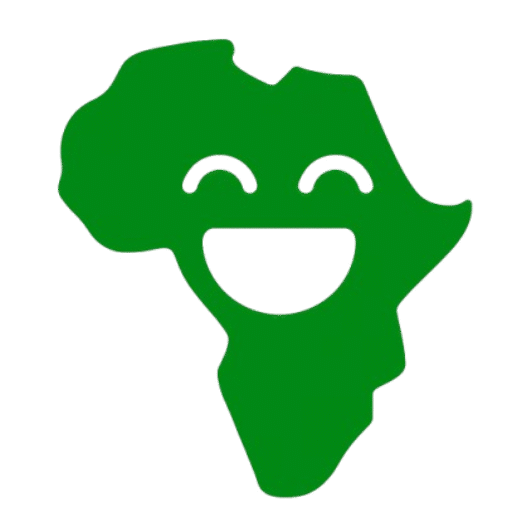African comedy has undergone a remarkable transformation, embracing modern entertainment trends while maintaining deep cultural roots. What began as oral traditions and storytelling around firelight has morphed into a vibrant global industry, with comedians taking the stage in sold-out theaters, appearing on popular TV shows, and gaining massive followings on digital platforms like YouTube. This evolution reflects not just a change in how comedy is delivered but also a reflection of Africa’s dynamic culture.
- Traditional Roots: Storytelling and Oral Comedy
- The Rise of Stand-Up Comedy in Africa
- Comedy on Television: Africa’s Stand-Up Revolution
- The Digital Age: YouTube and Social Media Comedy Stars
- How African Comedy Connects with Global Audiences
- The Future of African Comedy: A Bright Outlook
- Join the Laughter Revolution
In this article, we’ll explore the trajectory of African comedy, from its traditional origins to the modern-day rise of digital comedy stars. Let’s dive into the rich history and exciting future of African comedy.
Traditional Roots: Storytelling and Oral Comedy
African comedy has its roots deeply planted in the continent’s rich oral traditions. Before the advent of the internet or television, African comedians were storytellers, using humor to entertain, teach, and create social commentary. This type of storytelling was central to village life and often involved live performances, where comedians would blend wit, humor, and exaggerated narratives to keep their audiences engaged.
In many African communities, humor served as a coping mechanism. Elders would share humorous stories during gatherings, often poking fun at social norms or everyday life situations. For example, Griot performers in West Africa used storytelling to both entertain and pass down history in an engaging and humorous manner. These oral traditions laid the foundation for modern African stand-up comedy by developing a unique style based on rhythm, timing, and cultural context.
The Rise of Stand-Up Comedy in Africa
As African societies grew more connected to global media, stand-up comedy began to take form. In the 1990s, stand-up comedians like Ali Baba from Nigeria and Trevor Noah from South Africa started gaining attention, and their careers marked the early wave of modern African comedy.
Trevor Noah’s success story is a notable one. From his early days in South Africa, where he honed his craft by performing in small clubs, Noah’s comedy began to resonate globally when he joined The Daily Show in the United States. His ability to mix humor with social and political commentary made him a trailblazer for African comedians in international spaces. Trevor’s success proves that African humor has a universal appeal that transcends cultural barriers.
Meanwhile, in Nigeria, Ali Baba became one of the first Nigerian comedians to perform stand-up comedy on a large scale. His unique ability to mix local Nigerian languages and humor with universal themes captured audiences across Africa. His impact on Nigerian comedy has been so significant that he’s often referred to as the “King of Comedy” in Nigeria.
Comedy on Television: Africa’s Stand-Up Revolution
As the internet started to take hold in the early 2000s, African comedians found a new platform to reach even wider audiences: television. Shows like Comedy Central Africa and The Comedy Store in Nigeria showcased emerging comedic talent. These platforms allowed comedians to reach national and international audiences, expanding their reach beyond their local communities.
Comedy Central Africa, launched in 2010, is a game-changer for the continent’s comedy scene. It brought comedians like John Vlismas and Riaad Moosa to the forefront of African entertainment. Their performances mixed local humor with global comedy sensibilities, appealing to audiences across the African diaspora. These kinds of television shows marked a significant shift in how African comedy was consumed, as more people from different backgrounds could now access it.
The Digital Age: YouTube and Social Media Comedy Stars
The true revolution in African comedy came with the rise of YouTube and other social media platforms like Instagram and TikTok. These platforms opened up a new avenue for comedians to create content and gain followings without the need for traditional media or large networks. With just a smartphone and internet access, comedians from all corners of Africa can now create viral content that resonates with millions.
Nigeria’s Mark Angel Comedy is one of the most notable examples of digital comedy success. Mark Angel, a Nigerian YouTuber, and his team became famous for their skits that highlight everyday life in Nigeria. His channel, which features humorous sketches often centered around family dynamics and social issues, has amassed millions of subscribers and views, making it one of the largest African comedy channels on YouTube.
Similarly, Emanuella Samuel, a child comedian who is also part of Mark Angel’s crew, became an internet sensation, gaining international attention for her witty and hilarious skits. At just 13 years old, she already has the title of one of the most influential young African comedians.
Another standout is Lasisi Elenu, a Nigerian comedian who rose to fame on Instagram with his hilarious takes on life in Nigeria. His exaggerated facial expressions and relatable content helped him gain a huge following. Today, his YouTube channel and Instagram pages attract millions of viewers.
How African Comedy Connects with Global Audiences
The key to African comedy’s success lies in its authenticity and relatability. Comedians use humor to address real issues like poverty, politics, and social norms, but they do so in a way that is universal. Whether it’s the relatable struggles of daily life in Nigeria or South Africa’s complex political landscape, African comedians have the unique ability to make the world laugh about serious issues.
What makes African comedy even more attractive to a global audience is the storytelling culture that has been passed down through generations. From Nollywood movies to African stand-up, humor often comes wrapped in layers of wisdom and insightful social commentary. African comedians have proven time and again that humor can be both entertaining and thought-provoking.
The Future of African Comedy: A Bright Outlook
The future of African comedy is undoubtedly bright. As platforms like YouTube, Instagram, and Netflix continue to grow, there are more opportunities than ever for African comedians to reach a global audience. The rise of local streaming services like Showmax and IrokoTV has also provided African comedy content with broader reach and visibility.
African comedians are no longer limited to local stages—they now have international platforms, sponsorships, and brand partnerships at their fingertips. With global interest in African culture on the rise, the comedy scene will continue to expand, introducing new voices and perspectives from across the continent.
Join the Laughter Revolution
The evolution of African comedy, from traditional storytelling to YouTube sensations, is a testament to the continent’s cultural richness and resilience. African comedians have successfully bridged the gap between local humor and global entertainment, offering something truly unique to the world. Whether you’re a fan of stand-up, sketches, or memes, there’s no better time to be part of the African comedy revolution.
If you’re a comedy enthusiast, why not explore some of these rising stars on YouTube or tune in to local comedy shows? You can discover fresh content and support African comedians who are making waves globally. After all, the best part about comedy is sharing a good laugh—and the African comedy scene has plenty to offer.
Ready to discover more about the African comedy scene? Check out the latest sketches, stand-up performances, and comedy specials from rising African stars. Follow the links to platforms like YouTube, Showmax, or Netflix to experience the humor that’s taking the world by storm. And don’t forget to share the laughter with your friends!




















